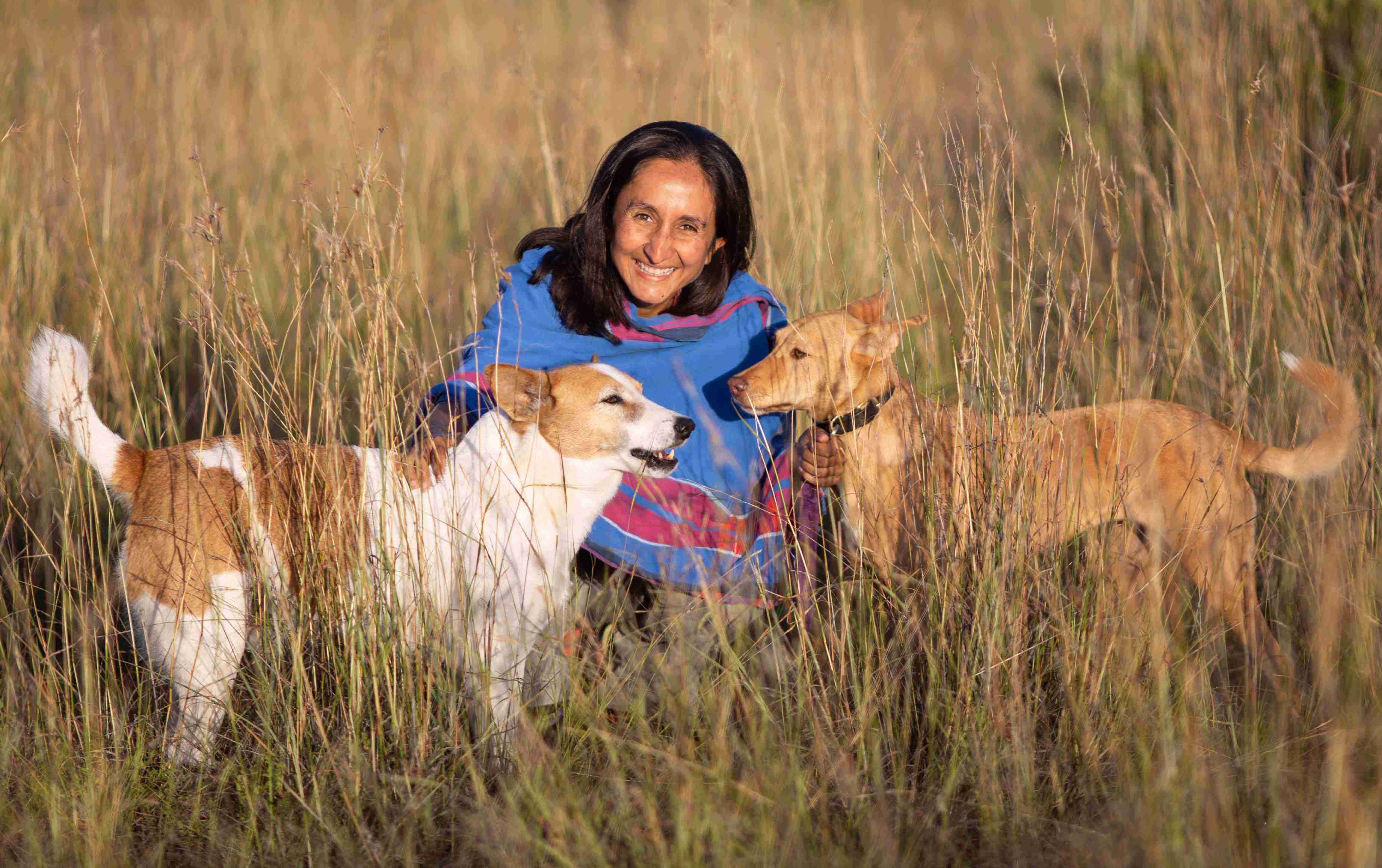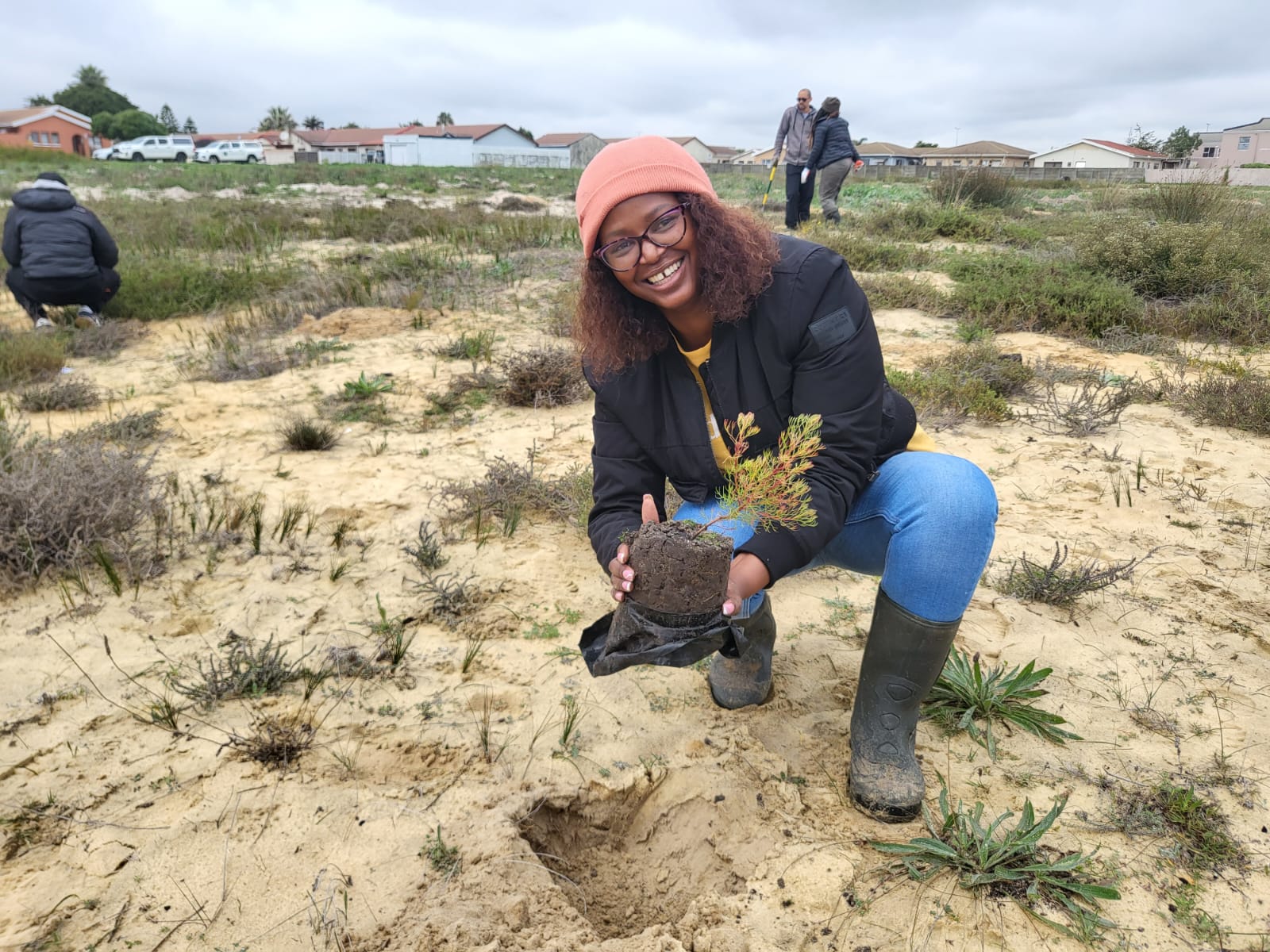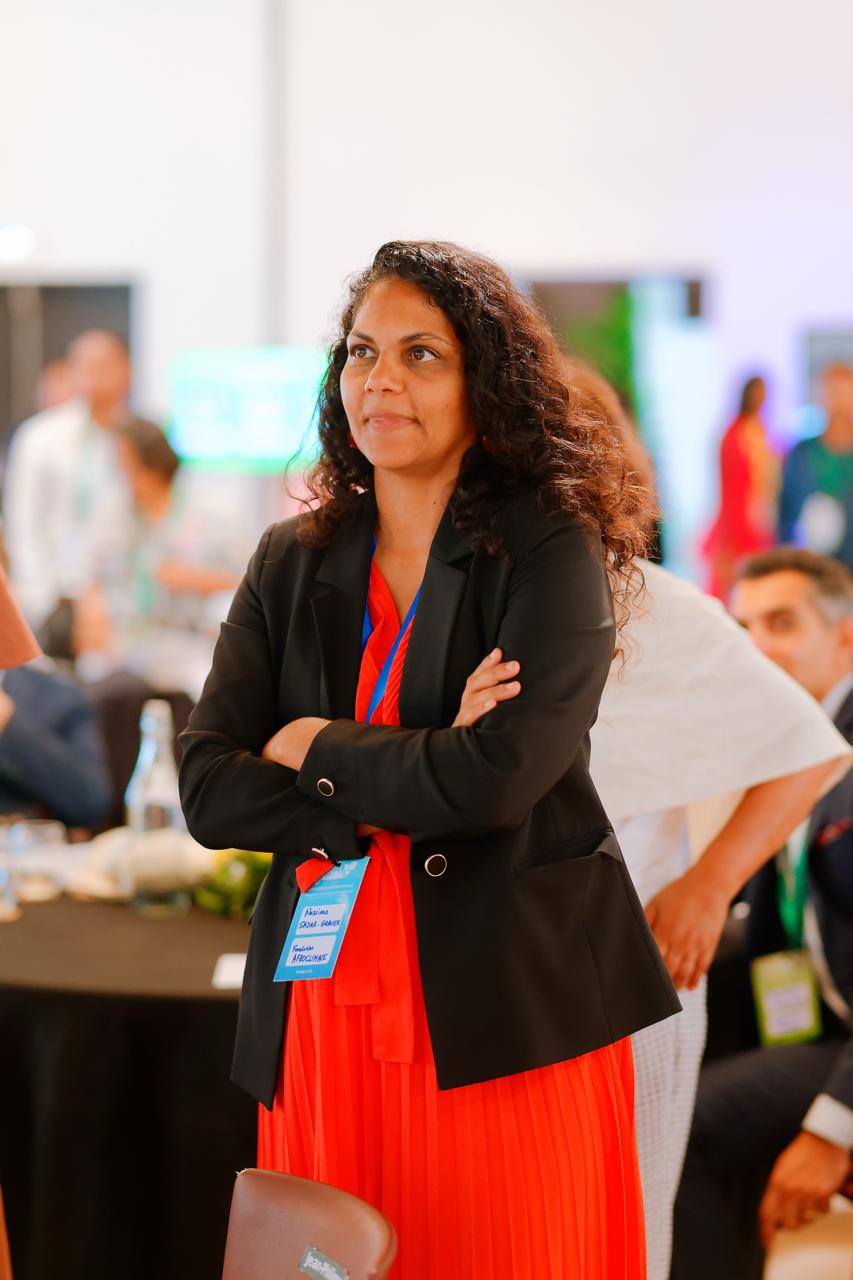Donors must support entire teams, not just specific projects because conservation is not just a hobby. It's real work, and real work deserves real pay.
In 2007, a rather naïve yet determined Shivani Bhalla set out to Northern Kenya’s Samburu region with a burning desire: to help reverse the plight of its diminishing lion population. With nothing but a makeshift camp, a team of three, and boundless energy, she laid the foundation for Ewaso Lions.
Over the years, the team initiated various programs to ensure a future for Kenya’s lions through community-led conservation.
Today, Ewaso Lions stands as a formidable organisation with a dedicated team of 67 staff members and a series of notable success stories that have contributed to the growth of lion populations in Samburu. Shivani’s commitment has twice earned her and the Ewaso Lions team the prestigious Whitley Award in 2014 and 2023.
In a conversation with Damaris Agweyu, Shivani reflects on the journey that led her to where she is today.

Shivani, what brings you joy?
I love my dogs. I love my personal space. I love what I do and where I do it. Although I was born and raised in Nairobi, I am uncomfortable with cities. The real me can be found in my camp in Samburu, working with an incredible team that shares my passion for lions. Sixteen-plus years of doing this work, and I've never gotten bored of lions—Samburu lions in particular. They are special.
How so?
Their social structure and behaviour are different. They're physically smaller and more beautiful if you ask me. Unlike other prides, Samburu lions live solitary lives, and their courage in this harsh landscape, where they hide from danger all day and venture out only at night to look for food, is truly admirable.
If you were an animal, would you be a lion or a dog?
Lions are generally known for their social nature, and I'm not particularly sociable. I’m obsessed with dogs, so it would be pretty nice to be a dog—if I were the owner.
If I had to choose an animal that resembles me, I'd say a squirrel—small, fast, and always on the go.
You have a very strong sense of self, knowing what you want and what you're passionate about.
I knew I wanted to work with animals and live in the bush since I was eight. The how is what varied. At one point, I wanted to be a ranger, but my parents thought it sounded a bit wild. Then, I wanted to be a vet, but realised I'm way too soft for that.
I was lucky because I had these wonderfully supportive parents, so I lived a pretty carefree existence. But then I started Ewaso Lions and had to handle a ton of responsibility. That’s when I grew up.
As I figured things out, I became more aware of what holds me back and what moves me forward. And, of course, age has helped. I may not be a fan of the ageing process, but it has definitely gifted me with clarity about who I am, what I like and what I don't like.
Where does the journey of Ewaso Lions begin?
I was in Samburu, working for Save the Elephants and, concurrently, doing my master's research on cheetahs. But then I spent months searching for them and couldn't spot a single one. Meanwhile, lions were everywhere, and they were unlike any I'd seen before. Most conservation efforts and research had been concentrated in the southern part of the country, and few people understood the northern lion population.
I had a strong feeling that these lions held a unique and compelling story. I suspected they were venturing outside protected areas and facing deadly threats, but I lacked the data and understanding to confirm this. At that point, I knew that my journey in conservation would focus on lions. I switched my fieldwork from cheetahs to lions.
As soon as I paid off my student loans, I resigned from my job to start Ewaso Lions. The date was August 1st, 2007. I was in my 20s. I had no plan. No vision. No money. Just a fierce passion and a crystal-clear "why."

Was it a daunting prospect?
No, because I had no grand vision for Ewaso Lions or understanding how big it would become. I was incredibly naïve. My team often laugh at how I did some crazy things in my 20s. There's a nearby area which is known to be quite unsafe. I would drive my small Suzuki to that area, exploring for hours on end. I wouldn’t dare do this today, but the dangers didn't daunt me back then.
What daunted me was knowing that the livelihoods of my team depended on me. When my first grant came through, I spent that on salaries for the three staff members, our food and fuel. It was 3000 dollars. We somehow managed to survive off that money for one year, and I remember having lots of emotions. Mostly, I was relieved by the fact that someone believed in us.
We remained a small team for the first few years, with each of us breaking our backs to carry out our responsibilities. But even at this stage, there was a lot I remained grateful for. Sure, I couldn't afford to take holidays, but I had the basics I needed to survive. And that was enough for me.
In 2012, we started getting steady funding, and things began to change. I stopped constantly worrying about paying staff, and the team grew. I could finally pay myself and took my first holiday in 2013.
As you were starting Ewaso Lions, what was the worst piece of advice you got?
That I'd never be successful. Never get money. And no one would ever take me seriously—if I didn't have a PhD. That was lousy advice. I never wanted to go back to university. I am not a scientist. I am not into academia. But this is what everyone was telling me. So, I enrolled for a PhD while I was starting Ewaso Lions. What a journey! The PhD was at Oxford University, but I took every opportunity I had to come back home. My health wasn't great. I was so uninterested in the PhD, but so interested in Ewaso Lions. I ended up submitting a thesis I wasn't very happy with.
Interestingly, Ewaso Lions was doing well. People were taking us seriously. We were getting funding. I was ready to throw in the towel with my PhD. But my dad and my colleague, Jeneria, had seen how hard I'd worked, and both told me to just get it done. And so I stuck it out for my parents. And for Jeneria.
I wrote a new thesis that was much more suited to my interests. My team helped me collect the data and gave me the space and time to finish it. I submitted it and passed.
Do I regret doing the PhD? No. Local conservation organisations take me more seriously because of it. The county government takes me more seriously. But internationally and funding-wise, I don’t think it matters.
A PhD is great if science and academia are very much who you are. But to do a PhD for the reasons I did it, no. You can do conservation without any education. Most of my team have never even finished secondary school, and they are the most amazing conservationists ever. And this is something I am emphasising in a book I am writing. I don't want young Kenyans to feel they need to have all these crazy degrees to get the work done. All you need is passion, commitment, drive and a love for what you do.
Do you think a certain degree of privilege is necessary to establish a conservation organisation?
I’m conscious that I did have it when I began, but I am not sure it is necessary to start. It just tends to be the general pattern, and this is one of the things I want to work on going forward—encouraging and supporting Kenyans to begin conservation projects without feeling that it’s for the privileged only.
Having said that, there's this common misconception that conservationists shouldn't expect decent pay, which undermines the profession's legitimacy. I've started having candid conversations with donors about these things. During a recent event in San Francisco, I emphasised the need for funding that covers the salaries of conservationists. Donors must support entire teams, not just specific projects, because conservation is not just a hobby. It's real work, and real work deserves real pay.
I'm also challenging the barriers created by complex grant applications that often require formal education, which can be a huge obstacle for many aspiring conservationists.
And then where does the funding go? If I choose to step back, will you still donate to the project? Are you donating because of my skin colour, or are you donating because of the work we do? It's hard because many funding organisations are fixated on the one-face model. I absolutely hate having my name associated with the organisation when it's this amazing team doing incredible stuff. But they put it all on you, and you must push back. I do this a lot. In February, I got this opportunity to get an award in California and asked that they give it to one of my team members instead. They didn’t want to hear it because they “didn't know who this team member was or if he could give as good a talk as I could”. I stood my ground and insisted they should let him tell his story in his own way. Finally, they agreed. And then I got a message from them saying, "We had a chat with him, he's perfect".
What direction would you like to see Kenyan conservation take?
I'd love to see a Kenyan conservation space led entirely by Kenyans.
I'm working on a two-year framework that’s about letting communities develop their own plans and decisions for their land and wildlife. Yes, the government has to ensure that parks are safe havens for wildlife, but there's a lot more that needs to be done outside of the parks, where most of our wildlife live. And it must be the communities working alongside the government to get the work done, not someone from the UK.
The framework applies to anyone, anywhere in the world, working to conserve any species. It's based on the lessons we've learned, and two of our programs in particular, which are totally community-led: Our Mama Simba Programme, which was started by two Samburu women and our Warrior Watch Programme, which Jeneria started. We're bringing in about 30 conservation leaders from around the world and are using all their experiences to develop this framework collectively.

How do you lead?
It goes back to how I started Ewaso Lions. I didn't presume to understand the Samburu landscape better than its people. I've maintained that outlook throughout the years. We did this together. So, I'm really happy to let the team get on with things.
Sometimes, it's hard because I'm a perfectionist. I get nervous when I see others doing things differently, but this is a personal struggle I'm working on. I have to be open to accepting that their leadership style could be very different.
What are your plans going forward?
I plan to put more focus on seeing our dog program at Ewaso Lions grow. I plan to spend more time with Samburu’s lions. I plan to get back into photography. I plan to mentor young Kenyans who want to start conservation projects. The list is growing, and I’m excited about what the future holds.
***
This interview is part of a series profiling the stories of the 2023 WE Africa leadership programme fellows, African women in the environmental conservation sector who are showing up with a strong back, soft front, and wild heart.




